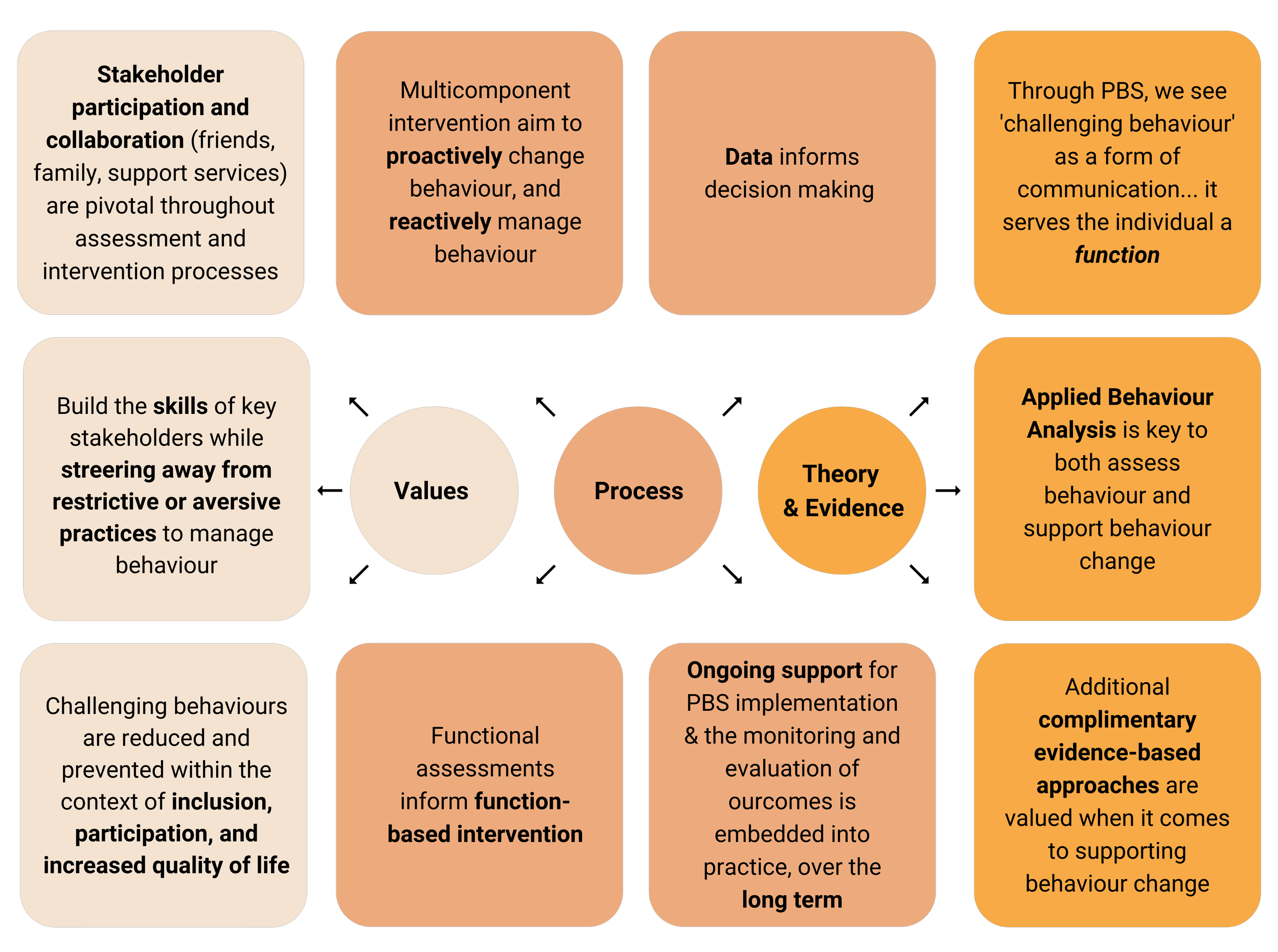Positive Behaviour Support
What is Positive Behaviour Support?
Positive Behaviour Support (PBS) is a widely endorsed response to support people with cognitive disability who use ‘challenging behaviours’. Some examples of challenging behaviours might include physical or verbal aggression, self-harm, property damage or inappropriate sexualised behaviours. Through a PBS lens, we see such behaviours as:
‘Challenging’, because they create challenges in an individual’s life in areas of relationships, safety and wellbeing, inclusion, participation, learning and development
‘Challenging’, because they challenge the systems around an individual, often resulting in harm to the individual or those around them
‘Challenging’, because they are widely misinterpreted and misunderstood, despite often serving a purpose for the individual and a way to communicate their needs
Key Components of PBS
What does PBS in the NDIS look like?
Like any NDIS support, PBS is an individualised support and looks different for everybody. It should however, reflect the components of PBS in the ‘key components’ in the diagram on this page, and usually includes:
The use of Functional Behaviour Assessment(s), along with other assessments to better understand the context(s) in which such behaviours are occurring
The use of various data collection methods and data analysis to inform decision-making
The development of a Positive Behaviour Support Plan, entailing proactive, preventative, reactive, and response strategies to reduce and manage challenging behaviours
Implementation support, to bring the Behaviour Support Plan to life through collaboration with the individuals support networks across settings
An ongoing focus on skill development, for both the individual at the centre and their support team
An overarching (and arguably primary) focus on enhancing quality of life for the individual at the centre
Oversight and ongoing intervention designed to reduce the use of restrictive practices
What is a Behaviour Practitioner?
Through the NDIS, PBS can only be provided by a registered ‘Behaviour Practitioner’. Behaviour Practitioners are registered with the NDIS Quality and Safeguards Commission to provide specialist behaviour intervention and support for NDIS participants. The aim of this role is to both enhance the quality of life of clients, and to reduce challenging behaviour through non-aversive, data-driven and person-centred interventions. Behaviour Practitioners are required to undertake regular supervision, meet minimum registration standards and participate in a high level of ongoing professional development.
Who can access PBS?
The provision of PBS is highly regulated within the NDIS. Only participants who have funding in the ‘CB Improved Relationships’ category can access this support. If you are aware of an individual who does not have this funding but may require it, it is advised that you gather as much evidence as possible to support this request and lodge a review with the NDIA. Don’t hesitate to call the NDIS Quality and Safeguards Commission or the NDIA if you have further questions on this process. Green Ant can provide advice around gathering this information, or can support with a Behavioural Assessments.





